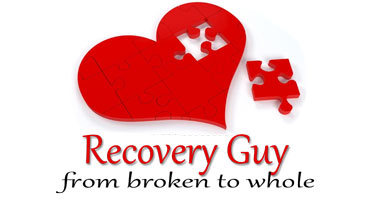
Have you ever been to one of those amusement parks that had a room full of distorted mirrors? Before Al-Anon, I would say that I spent much of my time looking at my life as if I were looking in one of those distorted mirrors. Denial was, for so many years, a blanket of security for me— or so I thought.
While living in that hall of mirrors, I didn’t see myself clearly. I couldn’t view my assets or character flaws in a manner that could serve me. Instead, I was so busy looking at someone else’s character flaws that I couldn’t make an honest assessment of my role in the unmanageability of my own life. Step 4 says we “made a searching and fearless moral inventory of ourselves.”
Most of my previous awareness regarding inventories had to do with tangible goods or supplies— something that could be measured. This inventory was about my character. It was about my behaviors on a continuum, with either extreme being harmful. I was so encouraged when my sponsor said that most character defects are an overworked asset and to approach it as honestly as I could. The level of transparency I was willing to put into this inventory was directly proportional to the growth that I could achieve from walking through this step. There must be a reason that red letters in scripture say, “first take the plank out of your own eye, and then you can see clearly enough to remove the speck out of your brother’s eye.” Matt 7:5 At first, it was scary to look at some of the habitual ways that I approached life and relationships.
For example, I have considered myself an unselfish and kind person. When I look at behavior on a continuum, there is the extreme of being a people pleaser on one end, and at the other, there is apathy. Neither extreme is a place I want to live. But when I did my inventory, I realized that I had allowed my fear of rejection to push me to the extreme of people-pleasing. This meant that I would make choices that didn’t work best for me to please someone else. In turn, that could lead to resentment when I said yes to something I wanted and needed to say no to in order to care for myself better.
I was raised to believe that selfish people asked what they needed and looked out for their own needs. And I was determined not to be selfish. Instead, I became a martyr, full of resentment. And I suggest that was far more damaging to me than saying no when I needed to. I also discovered that though I valued honesty I would avoid it in order to avoid confrontation.
Being able to take an honest look at my role in the parts of my life that I didn’t like was incredibly freeing. It meant that they were places that with the help of my higher power, God, I could change. I also discovered in this process that I had not been aware of many strengths that I possessed. I rediscovered my optimism, perseverance, generosity, trustworthiness, cheerfulness, and thankfulness. And it was from these positive traits that I was able to gain the courage to begin to change the things that I did not want to take into my future.
I began to make adjustments for my growth and betterment. I discovered that I didn’t need to be afraid to look at my part in shining light into the darkness of alcoholism. This new level of self-awareness allowed me to take my life from surviving to thriving. And I also gave myself some grace knowing that I did the best I could with what I knew at the time. In the words of one of my very favorite American poets, Maya Angelou, “Do the best you can until you know better. Then when you know better, do better.”

This is so good. I am working the 4th step again and am finding that I am also a people pleaser.
People pleasing is a common trap and it is born out of our codependency. We are the perfect hostage. Hostages want to please the hostage taker. Please reach out to me directly so I can help you walk through this.